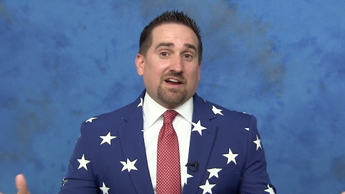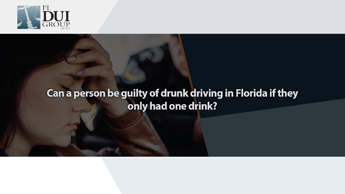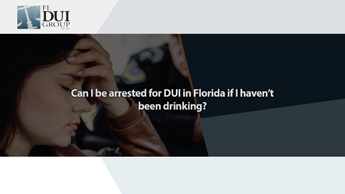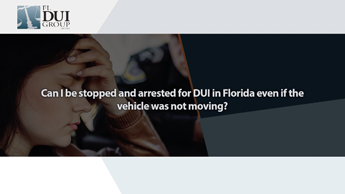Florida Refusal to Test Attorney
Traffic stops can be nerve-wracking ordeals. You’re driving along when out of nowhere those lights start flashing in your rearview mirror and you hear the sirens. Your heart races as you search for a safe place to pull over. As the officer approaches your vehicle, you wonder, should I get out my license now or wait to be told? Do I have to answer the questions the officer asks me, and what happens if I don’t? Do I have to get out of the car? Fear of doing or saying the wrong thing during a traffic stop only makes the encounter more tense and anxiety-ridden. Perhaps the most significant moment of the stop comes when the police tell you they are going to test the amount of alcohol in your bloodstream. What are your rights in this situation? Can you lawfully refuse to submit to such a test? What are the legal consequences if you refuse, and will it ultimately help or hurt your DUI case?
Every DUI case is unique, and your defense needs to be custom-tailored to the evidence, facts and all the circumstances surrounding your arrest. Below is some general information regarding your rights and the consequences of refusing a DUI breath test. If you’ve been arrested for DUI in Orlando or central Florida and need to talk to an aggressive, smart Florida refusal to test attorney about your case, call the FL DUI Group at 321-256-1141 for a free case evaluation with an experienced and successful DUI defense attorney.
Florida’s “implied consent” law for DUI testing
According to Florida Statutes 316.1932, “Any person who accepts the privilege extended by the laws of this state of operating a motor vehicle within this state is, by so operating such vehicle, deemed to have given his or her consent to submit to an approved chemical test or physical test including, but not limited to, an infrared light test of his or her breath for the purpose of determining the alcoholic content of his or her blood or breath if the person is lawfully arrested for any offense allegedly committed while the person was driving or was in actual physical control of a motor vehicle while under the influence of alcoholic beverages.” This means that by obtaining a Florida driver’s license, you have already consented to submit to a breath test when required. Although used less often, Florida’s implied consent law also includes a blood test for alcohol as well as a urine test for drugs. Since you have already given your implied consent when you got your license, the state can lawfully impose penalties on your refusal to test.
What are the consequences of refusing to test?
Refusing to submit to a lawful breath test results in a one-year suspension of your driver’s license. If you have previously had your driver’s license suspended for refusing to test, then your license will be suspended for 18 months. A 2nd refusal is also a misdemeanor under Florida criminal law which could subject you to criminal penalties separate and apart from any DUI trial should you be charged and convicted on the refusal. Additionally, the fact that you refused can be admitted as evidence against you in your DUI case. The jury could infer that you refused to take the test because you knew the results would be high. However, your attorney can argue other reasons why a person may refuse a test that do not lead to the conclusion that the person was driving under the influence. Regardless, the consequences for refusing a test are serious, and a refusal is in some ways treated more harshly than a DUI conviction.
When are you required to submit to a breath test?
Police officers are not allowed to pull you over for no reason, and they can’t make you take a breath test just to see if you might have been drinking. Once you’ve been stopped, you can only be required to submit to a breath test if:
- the test is incidental to a lawful arrest, and
- the police have reasonable cause to believe you were driving or in actual physical control of the vehicle while under the influence of alcohol
How do police get it wrong?
As noted earlier, police must have valid reasons to initiate a traffic stop in the first place. Beyond having reasonable suspicion to pull you over, police must meet a higher standard in having reasonable cause to require you to submit a breath test. At FL DUI Group, our DUI defense lawyers explore every aspect surrounding the stop and are ready to challenge the government’s grounds for making the initial stop as well as its reasons for requiring a breath test.
Regarding refusal to test specifically, Florida law requires the police to provide you with certain information, including letting you know that:
- Your driver’s license will be suspended (and for how long) if you refuse to take the test
- Refusing to submit to a lawful test can be used against you in any criminal proceeding
If the police fail to provide you with this information, they have not followed the proper procedures as set out in the law.
Also, note that these laws only apply to a chemical test of your blood, breath or urine. Nowhere does this law require you to submit to field sobriety tests (FSTs), nor does it provide consequences like driver’s license suspension for refusal to take FSTs. Police use FSTs during roadside stops as a way to generate probable cause to arrest you and make you take a chemical test. They may not tell you that you don’t have to take these tests; it’s up to you to know your rights and exercise them. If your rights were violated during a traffic stop regarding breath tests, FSTs, or your refusal to submit to either, or if serious procedural errors occurred, your legal defense team at FL DUI Group will point out these errors to the prosecutors, judge or jury in your case and present strong arguments demonstrating how the police got it wrong.
Help is Available for Refusal to Test DUI Defense in Orlando
If you’re being prosecuted for refusing to submit to a breath test in Orlando or central Florida, or if evidence of your refusal is being used against you in a prosecution for driving under the influence, contact FL DUI Group at 321-256-1141 for a free case evaluation with a skilled and knowledgeable Florida DUI defense attorney.








